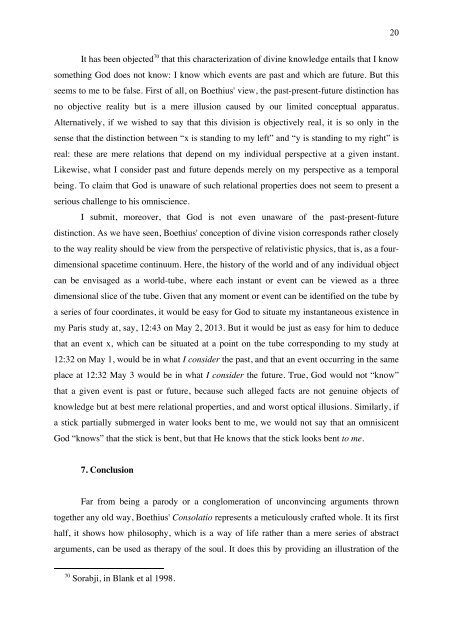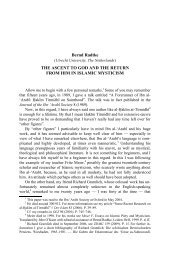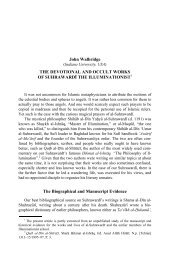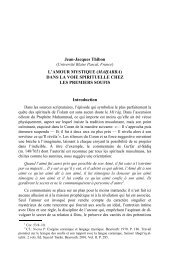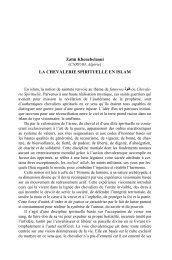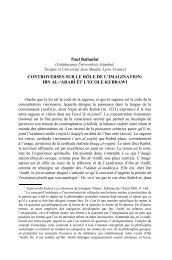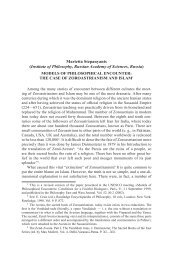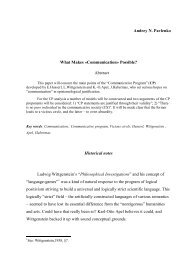Bothius talk DEF
Bothius talk DEF
Bothius talk DEF
Create successful ePaper yourself
Turn your PDF publications into a flip-book with our unique Google optimized e-Paper software.
20<br />
It has been objected 70 that this characterization of divine knowledge entails that I know<br />
something God does not know: I know which events are past and which are future. But this<br />
seems to me to be false. First of all, on Boethius' view, the past-present-future distinction has<br />
no objective reality but is a mere illusion caused by our limited conceptual apparatus.<br />
Alternatively, if we wished to say that this division is objectively real, it is so only in the<br />
sense that the distinction between “x is standing to my left” and “y is standing to my right” is<br />
real: these are mere relations that depend on my individual perspective at a given instant.<br />
Likewise, what I consider past and future depends merely on my perspective as a temporal<br />
being. To claim that God is unaware of such relational properties does not seem to present a<br />
serious challenge to his omniscience.<br />
I submit, moreover, that God is not even unaware of the past-present-future<br />
distinction. As we have seen, Boethius' conception of divine vision corresponds rather closely<br />
to the way reality should be view from the perspective of relativistic physics, that is, as a fourdimensional<br />
spacetime continuum. Here, the history of the world and of any individual object<br />
can be envisaged as a world-tube, where each instant or event can be viewed as a three<br />
dimensional slice of the tube. Given that any moment or event can be identified on the tube by<br />
a series of four coordinates, it would be easy for God to situate my instantaneous existence in<br />
my Paris study at, say, 12:43 on May 2, 2013. But it would be just as easy for him to deduce<br />
that an event x, which can be situated at a point on the tube corresponding to my study at<br />
12:32 on May 1, would be in what I consider the past, and that an event occurring in the same<br />
place at 12:32 May 3 would be in what I consider the future. True, God would not “know”<br />
that a given event is past or future, because such alleged facts are not genuine objects of<br />
knowledge but at best mere relational properties, and and worst optical illusions. Similarly, if<br />
a stick partially submerged in water looks bent to me, we would not say that an omnisicent<br />
God “knows” that the stick is bent, but that He knows that the stick looks bent to me.<br />
7. Conclusion<br />
Far from being a parody or a conglomeration of unconvincing arguments thrown<br />
together any old way, Boethius' Consolatio represents a meticulously crafted whole. It its first<br />
half, it shows how philosophy, which is a way of life rather than a mere series of abstract<br />
arguments, can be used as therapy of the soul. It does this by providing an illustration of the<br />
70 Sorabji, in Blank et al 1998.


